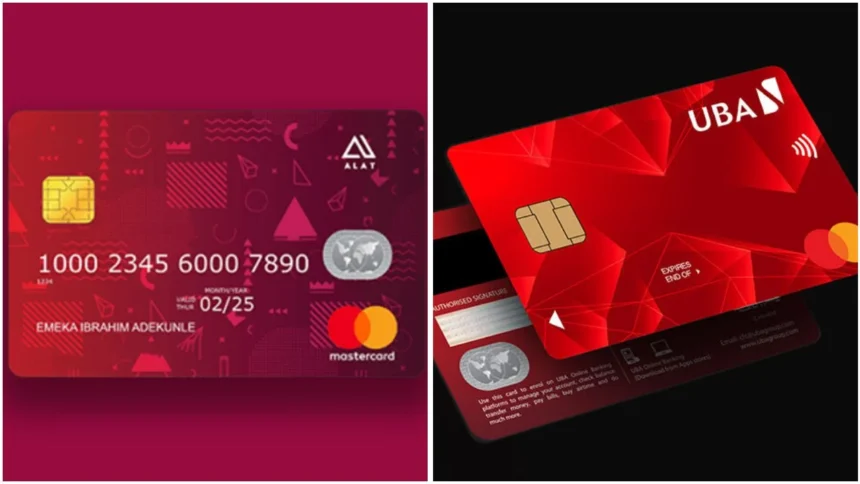Two major Nigerian banks restore global spending access for customers using naira debit cards
In a significant update for Nigerian consumers, United Bank for Africa (UBA) and Wema Bank have resumed international transactions on naira-denominated debit cards, nearly three years after the service was suspended due to forex scarcity.
UBA, in a recent customer advisory, announced the return of international capabilities on its Premium Naira Cards, including Gold, Platinum, and World variants. The bank highlighted that customers can now enjoy global payments for online shopping, point-of-sale (POS), and ATM withdrawals with improved ease and flexibility.
“This means you can now use your Premium Naira Card for everyday payments, online shopping, POS, and ATM transactions across the world, with more ease and flexibility,” UBA stated.
“If you haven’t used your card recently, now’s a great time to rediscover the convenience and prestige that comes with being a UBA premium cardholder.”
Similarly, Wema Bank announced that its naira Mastercard now supports dollar payments on popular global platforms like Amazon, eBay, AliExpress, Netflix, Spotify, and YouTube.
“Your Wema Naira Mastercard just went global!” the bank said. “Now you can pay in dollars on all your favourite international platforms.”
Why Are Banks Re-Enabling Naira Card Transactions Abroad?
The decision by Nigerian banks to reactivate international functionality on naira cards stems from improvements in the foreign exchange (FX) market.
According to Ayokunle Olubunmi, Head of Financial Institutions Ratings at Agusto & Co, banks are responding to increased forex liquidity and reduced parallel market arbitrage opportunities.
“The moderating premium on the parallel market and reduced arbitrage opportunities have encouraged this move,” Olubunmi noted.
Charles Sanni, CEO of Cowry Treasurers, further attributed the development to:
- The narrowing spread between official and black market FX rates
- Rising diaspora remittances, thanks to the Central Bank of Nigeria’s (CBN) new policy on non-resident accounts
- Nigeria’s improving credit rating and successful clearing of FX backlogs
- Growth in oil prices due to geopolitical tensions
- The rollout of a new FX trading platform
- Stronger bank capitalization levels
“The naira has continued to appreciate, and high interest rates discourage borrowing for forex speculation,” Sanni explained.
A Brief History of the Suspension
From mid-2022 through early 2023, many Nigerian banks halted international card transactions due to severe dollar shortages. Key events included:
- Standard Chartered Bank halted foreign card use in July 2022
- First Bank of Nigeria (FBN) suspended international naira Mastercard transactions in September 2022
- GTBank and Zenith Bank followed suit between November 2022 and January 2023
- Fintech platforms like Flutterwave and Eversend also paused international virtual card services
These measures were a response to Nigeria’s chronic FX scarcity, which threatened several economic sectors.
Looking Ahead
The return of international naira card services signals renewed confidence in Nigeria’s FX management, supported by recent monetary reforms. As more banks follow suit, Nigerians may soon enjoy wider global spending access without needing dollar cards.




